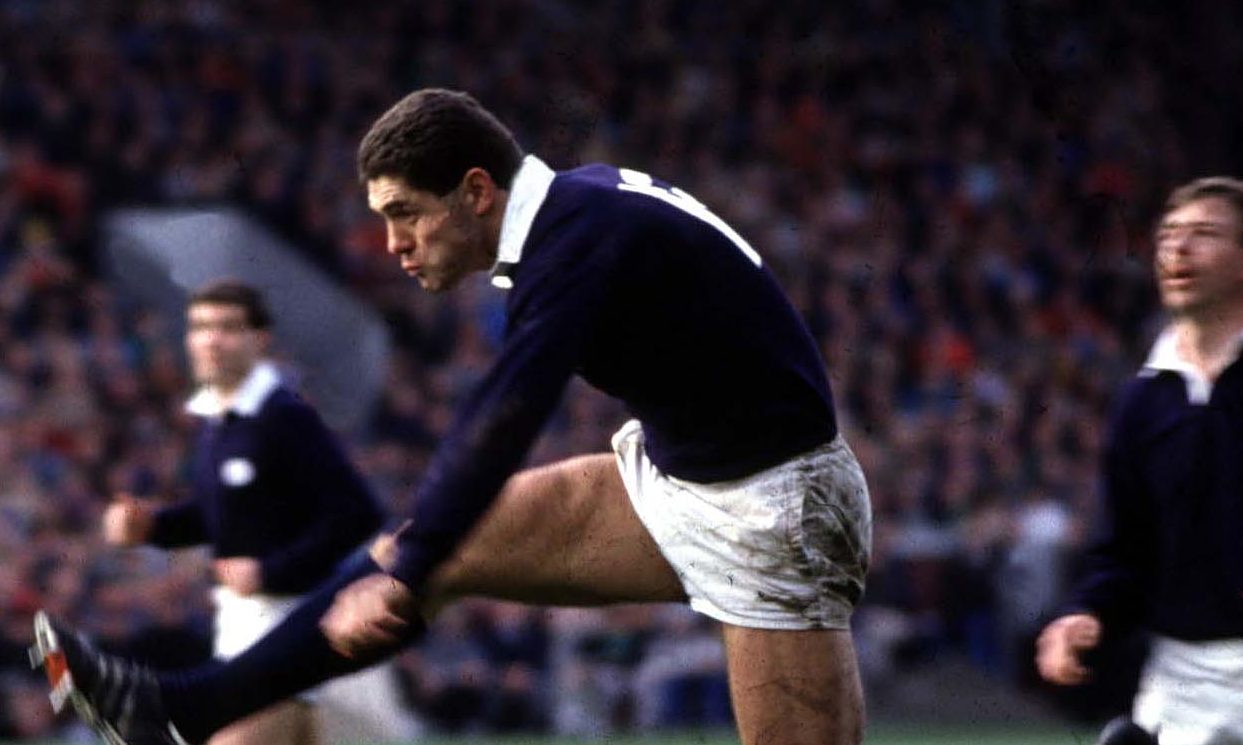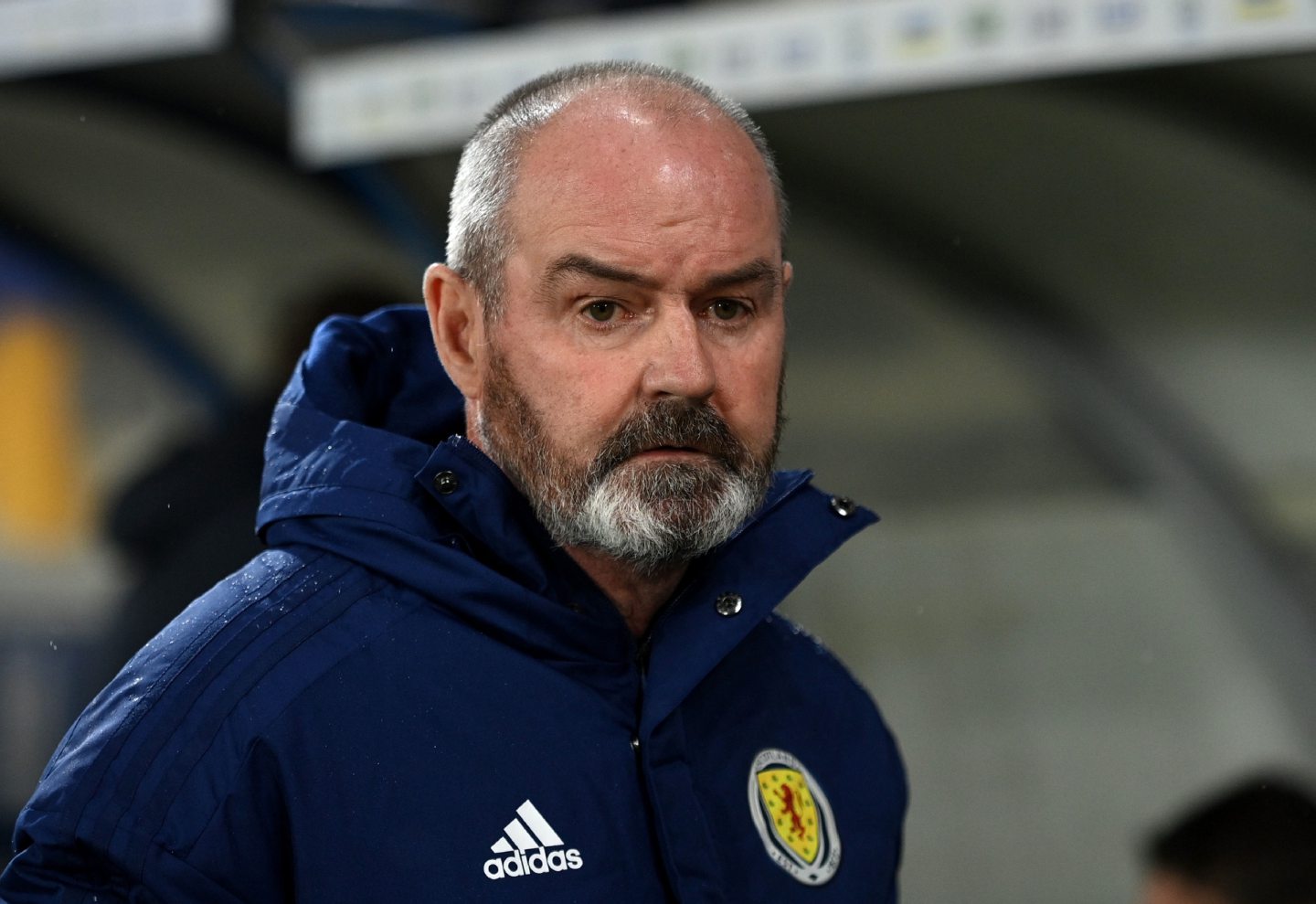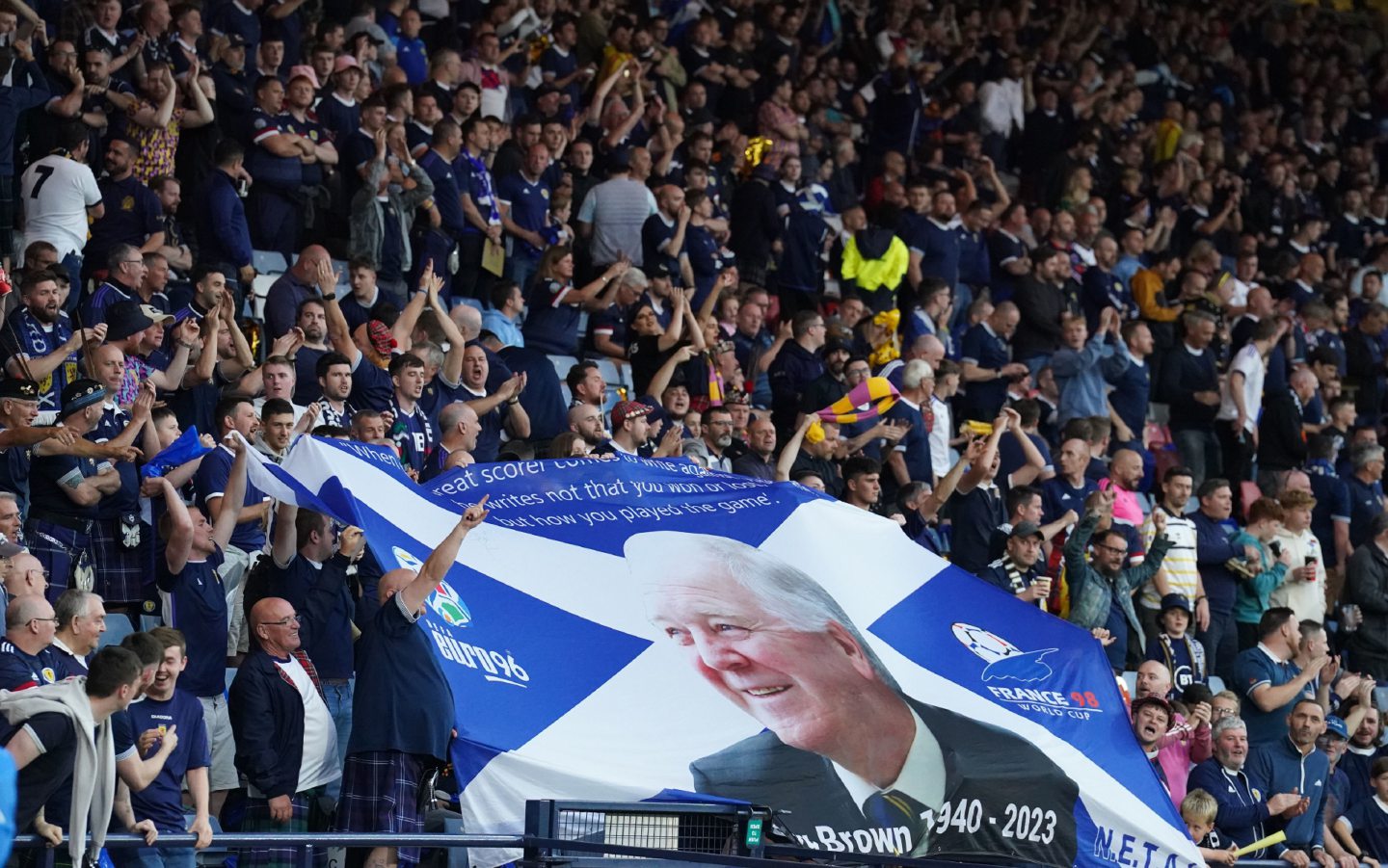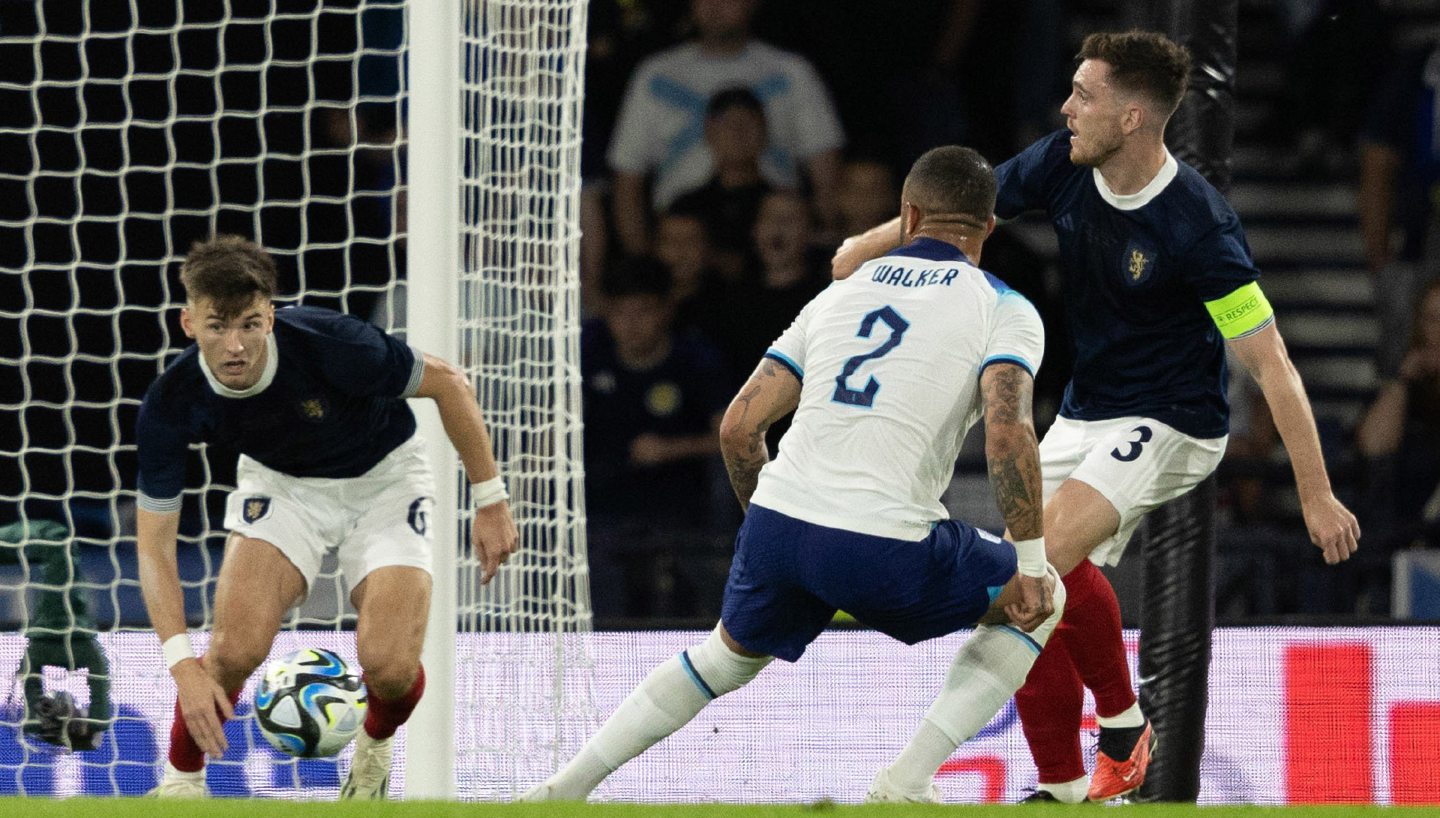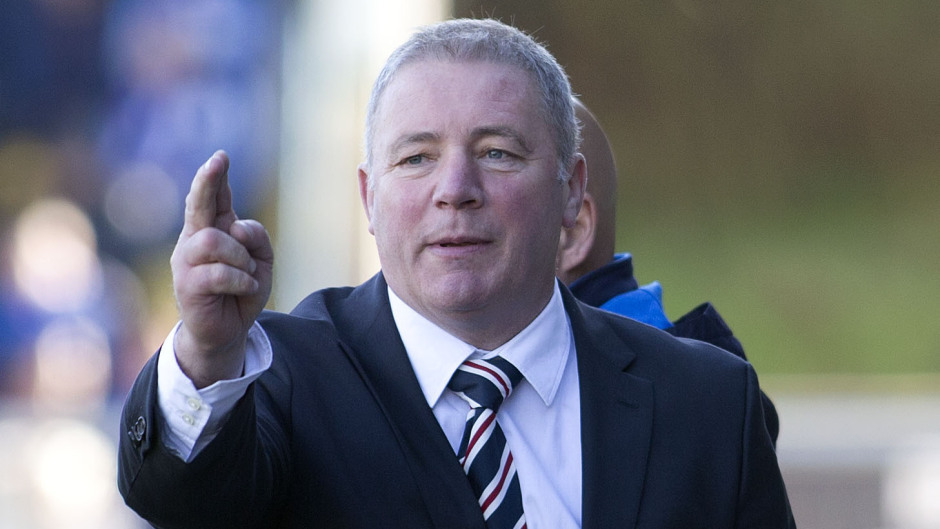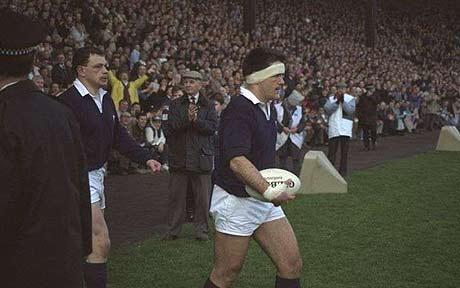
It was in the press box at the Rugby World Cup semi-final meeting between Scotland and England in 1991 that I began to realise how these matches between the Auld Enemy turned some people slightly crazy.
Inside Murrayfield, I was sitting next to the former Scotland legend Gordon Brown, who was buzzing with anticipation about the contest, but seemed equally as passionate about being involved in the national anthems.
He was on his feet for Flower of Scotland, belting out the lyrics about the English being sent homewards “tae think again”. But, in a cauldron of a packed stadium, he dragged me up with him to sing God Save the Queen, with tears in his eyes as he gave it laldy.
I was genuinely curious about this and pointed out – Brown was still a redoubtable character at this stage – that the lyrics of the two anthems contradicted each other, but he was having none of it. Whoosh, he turned round and uttered the immortal words: “Listen laddie, it doesn’t matter who loses today. Whatever the outcome, Britain wins.”
Familiar storyline
With the greatest of respect to the sadly departed lock forward, I’d respond that many of my least positive memories from 35 years of covering sport across the globe were whenever these two countries locked horns.
Indeed, that tussle for a place in the final was a case in point. It was a dire spectacle, a gruelling war of attrition, most famous for Gavin Hastings missing a straightforward penalty in the closing stages with the score tied at 6-6.
Thereafter, the visitors’ Rob Andrew landed a drop goal and the Scots were eliminated. A storyline which became wearily familiar as the decade advanced and the Twickeham brigade made their adversaries pay dearly for the famous 1990 Grand Slam triumph by David Sole’s team.
A sense of violence in the air
As I headed back to the office that evening, a couple of supporters were kicking lumps out of each other in Market Street. A drunken lout in a kilt was screaming blue murder at a taxi driver about not being allowed into the cab with a fish supper. Walking up Fleshmarket Close – the name of an Ian Rankin Rebus novel – a woman with a Union Flag stuck the thing in my face and I had to take a very deep breath.
That was a microcosm of similar scenes around Edinburgh in the ensuing hours, although you would never have guessed it from the police incident and arrest figures – or rather the lack of them. At that point, rugby still went about its business above the law. Private scores were settled with a right hook or a Glasgow kiss. If these assaults had followed a football international, they would have generated banner headlines.
But the fact they didn’t should not be allowed to gloss over the fact of what happens too often when these nations meet on different fields. Sport is supposed to be life-enhancing, entertaining, a positive battle of wills and skills. Not on this occasion.
And very little appears to have changed in the last 30-odd years.
Row over TV coverage
Even in the build-up to last week’s “friendly” tussle between Scotland and England at Hampden Park to celebrate the 150th anniversary of when these sides first met in football (at a cricket ground), there were arguments about why Tartan Army supporters have been forced to pay money to a Scandinavian company, Viaplay, to watch their heroes in action, while the English and Welsh enjoy free access to international fixtures.
Given that cash-strapped Viaplay has recently been forced to make cost-cutting measures and withdraw from the UK, prompting Channel 4 to step into the fray, I asked the Scottish Government for a response and was told: “Broadcasting is reserved to the UK Government. However, the Scottish Government remains strongly committed to a more representative service for Scotland and will continue to press for improvement to ensure the needs and interests of Scottish audiences are met.
“We continue to support expanding the audience for both men’s and women’s Scottish international football, and other major sporting events, on free-to-air broadcast TV.”
‘Scottish international team belongs to the nation’
Yet, that answer didn’t appease Andrew Smith, the chairman of the Scottish Football Supporters Association, who couldn’t have been clearer about his thoughts.
He told me: “Our research shows that fans overwhelmingly want Scottish international
football matches, men’s and women’s on free-to-air, aka council telly.
“The Scottish international team belongs to the nation, not the SFA and the SFA’s unilateral decision to sell the airtime to the highest bidder, rather than seeing it as a long-term business consolidator, is a combination of commercial greed and myopia.
“They don’t deserve the Tartan Army.”
SFA responds it’s UEFA who decides
The association dismissed this when a spokesman told the P&J: “Our agreement is with UEFA, and we do not speak directly with Viaplay on contractual matters, as the contract is between them and UEFA.
“Viaplay have a contractual obligation to broadcast the Scotland matches under the terms of their agreement with UEFA, which they did for the Cyprus match last week.
“Matches on free to air are always a possibility should a free-to-air broadcaster negotiate a deal with Viaplay/UEFA. The SFA wants as many people in Scotland to watch Scotland men’s and women’s matches as possible.”
Meanwhile, before a ball had even been kicked in Tuesday’s match there was a mass booing of God Save the King, which almost drowned it out.
Former Scotland striker, Ally McCoist, condemned this behaviour and said: “If you can’t show the opposition respect by respecting their national anthem, I think it is a poor show. I get the rivalry with England and Scotland, and I get some of the Scots, perhaps SNP fans giving it the whole bit, but I am talking about in general.
“There should be respect shown for an opposing national anthem and I think [what happened] is totally out of order.”
McCoist was soon on the back foot
These comments, predictably, sparked a backlash. Tommy Sheppard, the SNP Scotland spokesman at Westminster, said: “It’s dredging the bottom of the political barrel to say the boos were an organised protest linked to the SNP.
“Polling shows that republican sentiment is spread evenly among supporters of the SNP, Labour and the Lib Dems.”
Almost nobody pointed out there was a precedent in the room. When the then Prime Minister Margaret Thatcher attended the 1988 Scottish Cup final between Celtic and Dundee United in an effort to boost her popularity north of the Border, several players refused to shake her hand and the Hampden fans, en masse, greeted her with a plethora of red cards and shouted: “You can shove your poll tax up your a**e”.
Playground insults
Some of this is similar to small children flinging insults at each other in a playground. Yet, that’s one of the prevailing features of Scotland v England clashes in sport. It’s not so much a rivalry as a running feud, less about players and tactics than blinkered people on both sides dragging us back to Bannockburn and Flodden.
We can maybe laugh now at the myriad Scottish supporters on the Wembley turf – and astride the goalposts – after the 2-1 victory in 1977, but from a neutral perspective, imagine the reaction if England fans had done the same thing at Hampden.
It was vandalism on a grand scale. Men behaving badly and using patriotic fervour as a get-out clause for conduct they would not have tolerated from others.
But there again, the process works both ways. I was at Murrayfield for the Grand Slam showdown in 1990 as the England players and their wives and girlfriends sauntered on a jolly stroll around the stadium, convinced it was going to be a cakewalk.
As veteran scribe Bill Lothian told me this week: “With regards to that game, a Press Association preview dropped and had England as good as home and dry.
England touts sold Grand Slam shirts
“The intro was something like: ‘England touched down in Edinburgh at 2.45 today, en route to Grand Slam glory’. I took it out of the printer and sent it straight to my friend and former club coach Bob Munro, the Scotland team manager.
“I still like to think the arrogance contained in that PA piece had a small part to play in his team talk and what happened on Saturday.”
Is this harmless fun and banter? Or something more insidious? Whatever the answer, the many fans calling for the revival of annual Scotland v England football matches should be very, very careful what they wish for.
